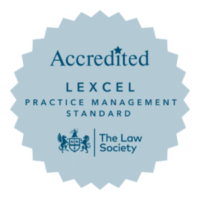Child Access Rights for Grandparents and Secondary Relatives
26th Jan 2024
When a parent blocks child access to grandparents and secondary relatives after a relationship breakdown
When relationships break down it is not just parents and children whose lives are dramatically affected. Grandparents and other non-parents – aunts and uncles for example – often encounter difficulties when they want to spend time with children with whom they have built a bond, often over many years.
Grandparents and other non-parents, unfortunately, have no automatic rights to see the children.
What you can do to reinstate / agree access and arrangements to spend time with children of the family.
However, the children have a right to a relationship with their family and if the parents refuse for a grandparent or other non-parent to have contact with a child, that person can pursue the legal process – including mediation, to have formal arrangements in place.
Unlike parents and step-parents, grandparents and other non-parents have an extra step to take before their Child Arrangements application can proceed. They must ask the court for permission to make the application. In deciding whether to allow an application by a non-parent judges will look at:
- The nature of the Child Arrangements Order being sought;
- The applicant’s connection with the child;
- Any risk there might be that disruption caused by the proposed application might harm the child.
Once permission is obtained an application can then be made.
We provide easy to understand, quality legal advice in a way that suits you.
Instances of non-parents, such as grandparents, being deprived of spending time with closely connected children is one that sadly appears to be on the increase. At Thatcher + Hallam we offer an initial free 30 minute consultation to advise on such child arrangement applications before going down the court route. As the rules make clear, out of court agreements are preferred because they tend to be more successful in the long term.
If you would like more information, please contact one of our family team on 01761 414646 or email us or contact us through our website.
Related news
Articles you may find useful
Like this article? Sign up for our regular newsletters





